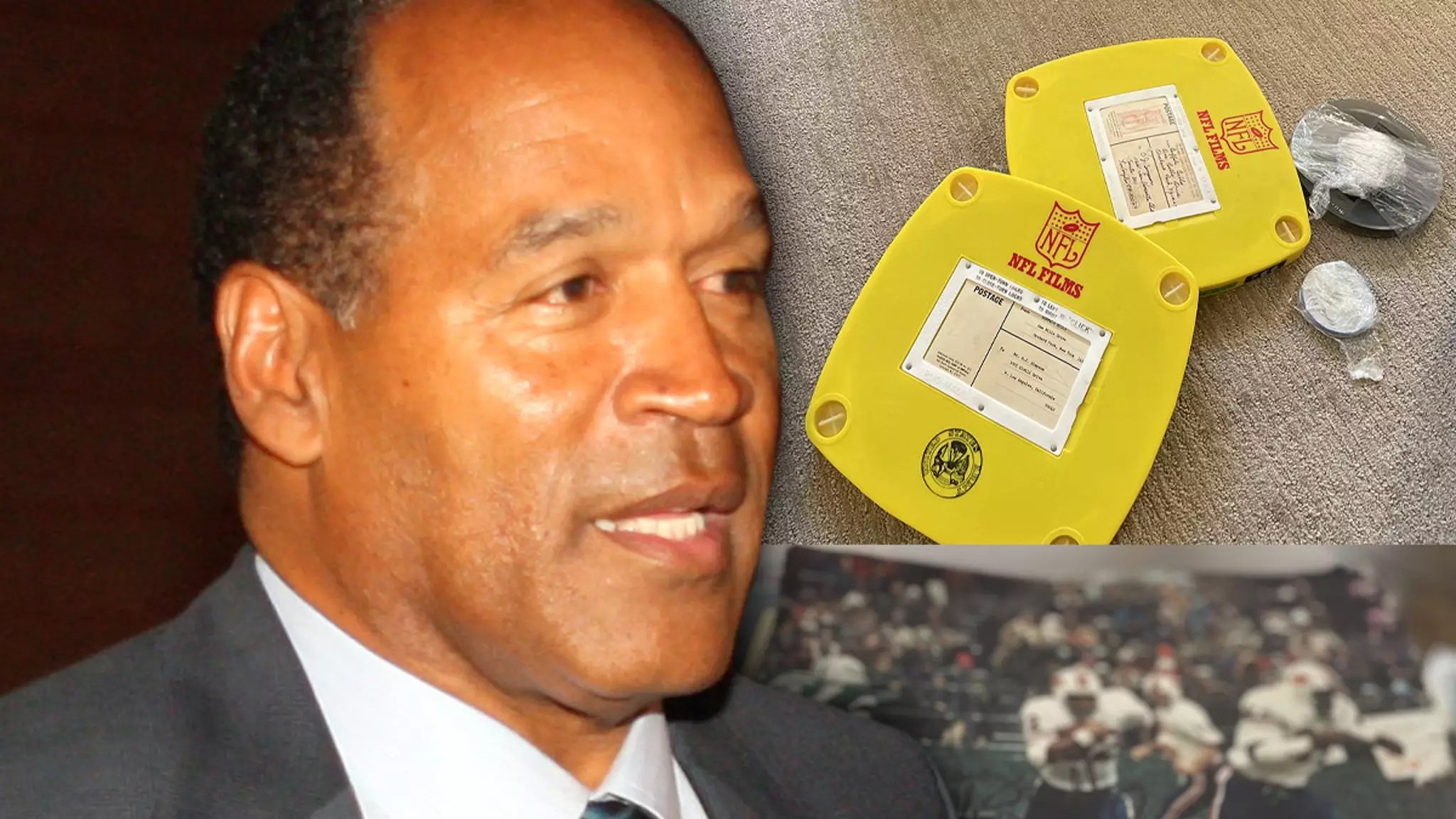The estate of O.J. Simpson, a figure imbued with both athletic prowess and notorious controversy, is preparing for a noteworthy auction, as legal proceedings unfold by the executor Malcolm LaVergne. Spanning the dates from March 12 to March 29, this event promises to surface items that encapsulate the dual nature of Simpson’s existence—a celebrated football player and a contentious figure in American history. Such an auction raises compelling questions about the intersection of personal history and the commercial world, particularly regarding how we value remnants of public figures who have elicited both admiration and disdain.
Among the plethora of items set to hit the auction block is a collection of photographs showcasing Simpson’s interactions with influential political figures, including former President Bill Clinton and Henry Kissinger. These images not only provide a glimpse into Simpson’s life but also serve as historical artifacts, encapsulating a time when celebrity and politics were intricately entwined. Additionally, a signed Heisman USC poster pays homage to Simpson’s remarkable achievements on the field, pricing nostalgia against the backdrop of his tumultuous off-field behavior. One can’t help but wonder about the implications of placing such items for public sale—do they reinforce his legacy or rather embolden the missteps in his narrative?
Simpson’s auction will also feature artworks and plaques commemorating both his sports career and his ventures into Hollywood. From Andy Warhol’s artistic interpretation of the former athlete to plaques celebrating his stardom in sports, the offerings encompass a wide spectrum that reflects both triumph and tragedy. Notably, the inclusion of Simpson’s prison pornography collection underscores the complexities of his life after fame, revealing the darker facets of his persona. This particular aspect of the auction raises ethical considerations: should items associated with such a controversial life be commodified?
As LaVergne seeks to alleviate financial distress for Simpson’s creditors, the involvement of the family adds another layer of complexity. Simpson’s children retain the right to object to the auction, with a deadline set for February 26. Their voices in this matter are critical, as they must navigate the tension between preserving their father’s legacy and addressing financial responsibilities. The legal battle surrounding the auction further reflects the often-public struggle of families to reclaim or reframe their loved one’s legacy, especially following turbulent relationships with fame and public perception.
The idea that items associated with O.J. Simpson, including legal documents and even a noted deathbed, could be auctioned off invites debate on the value assigned to personal history in a public context. Auctions of this nature pose provocative questions: How should society deal with the remnants of lives marked by fame and infamy? As the proposed auction looms, the potential outcomes will resonate beyond the financial realm, influencing how generations remember O.J. Simpson—not only as an athlete but as a complex figure enmeshed in the cultural fabric of America. In the end, this auction serves as a poignant reminder that personal legacies are often fraught with complexities that transcend mere material value.







Leave a Reply